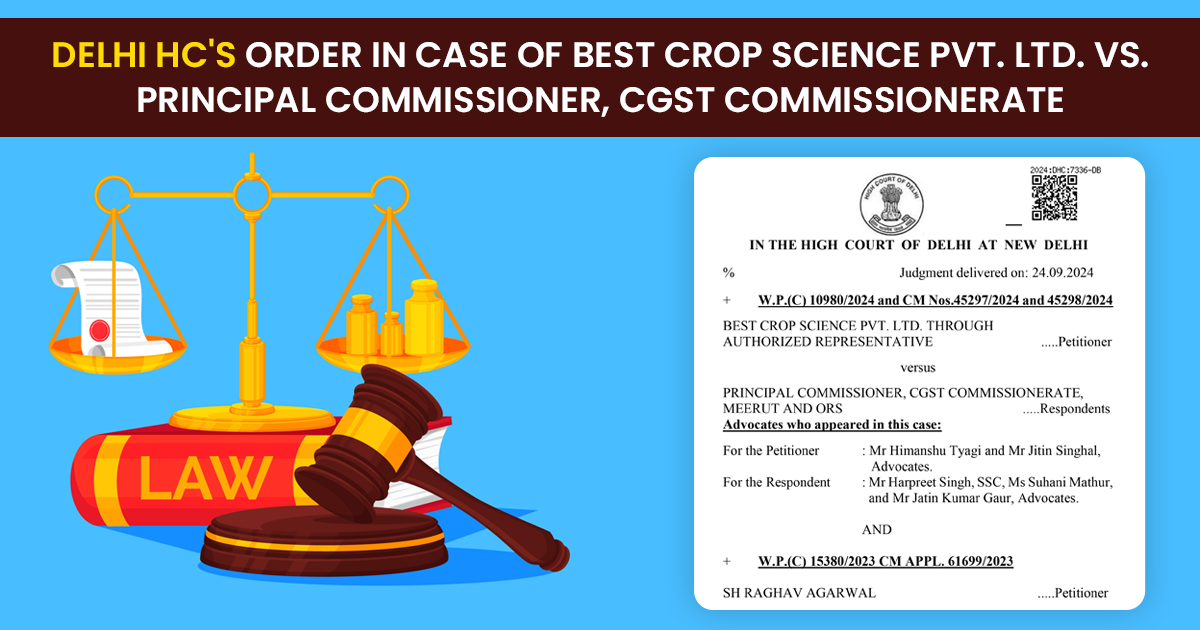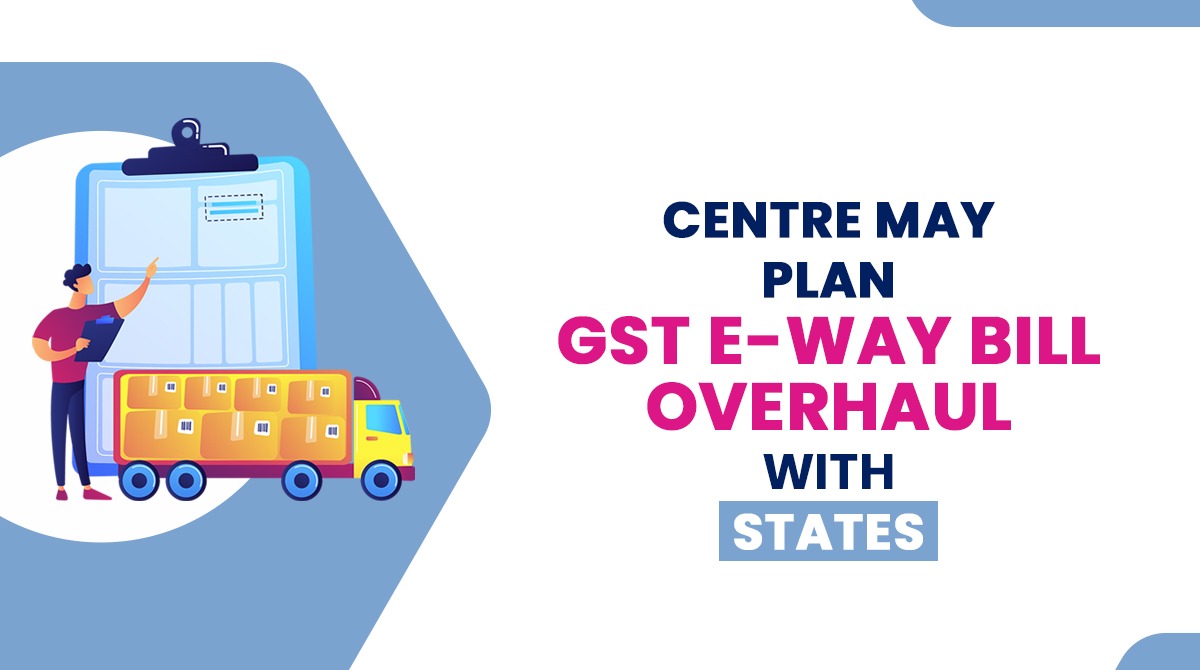
The Delhi High Court ruled that the amount of debt to be disallowed from the Electronic Credit Ledger (ECL) must not surpass the amount of the Input tax credit (ITC), which is regarded to have been taken by taxpayers wrongly.
The High Court explained that Rule 86A of CGST Rules 2017 is an emergent measure for revenue protection by temporarily not allowing debit of available ITC in the ECL, which the Commissioner or an officer authorized via him has grounds to acknowledge has been claimed incorrectly.
The Division Bench of Justice Vibhu Bakhru and Justice Sachin Datta noted that “when Rule 86A(1) of the Rules refers to the ITC available in the ECL of a taxpayer (which the Commissioner or the officer authorized by him has reason to believe has been fraudulently availed or is ineligible), it clearly refers to the amount that is lying to the credit of the taxpayer in his ECL”. (Para 69)
If the Commissioner believes that the input tax credit (ITC) claimed is less than the ITC credited in the Electronic Credit Ledger (ECL), the order under Rule 86A(1) will be limited to the amount equivalent to the ITC that the Commissioner believes has been fraudulently claimed or is ineligible, the Bench cited.
Case Fact
The applicant has approached the HC contesting the orders of the Commissioner under rule 86A of CGST Rules, 2017 restricting the ITC over credit available in respective Electronic Credit Ledgers (ECLs). The applicant argued that it has made an artificial negative balance in the ECL.
Until the negative balance in the Electronic Credit Ledger (ECL) of the respective applicant is offset by further addition of Input Tax Credit (ITC), the applicant is unable to use the ITC they have claimed to pay their dues. It was argued that only the remaining ITC after adjusting the negative balance would be available to the taxpayer to settle their dues.
Opinions of Respective Counsels
The applicant argued that Rule 86A does not allow the ITC to restrict, which is not present in the ECL of the taxpayer. They asserted that the authorization of the competent officer to restrict the ITC of the taxpayer is limited to the ITC that is present at the material time in the ECL of the taxpayer.
The respondent/ Revenue Department countering it asserted that the commissioner/authorized officer has the authority to not permit the debit of an amount identical to the ITC which he has the cause to assume was wrongly claimed or is ineligible.
Recommended: Practical GST ITC Claiming Complexness with Suggestions
The cited amount is not limited to the credit balance of the ITC as available on the order date under rule 86A, and the ITC amount that could be restricted may surpass the credit balance of the ITC as available in the ECL on the order date and the assessee shall not get allowed to use the ITC towards the release of its dues or to ask for a refund, till the complete amount which is alleged to have been incorrectly claimed is blocked.
High Court Observations
It was remarked by the bench that the debate in the current petition is towards the interpretation of Rule 86A vis-à-vis the nature of the privilege of a taxpayer to take ITC.
It was elaborated under the Bench that the right to claim and use the ITC is a legal right and an asset that accrues via virtue of the provisions of the CGST act and that vests with the assessee if he fulfils the mentioned prerequisite for this entitlement.
The practice of the power under rule 86A refuses the taxpayer its capability to release its obligations via using the ITC or asking for a refund which it is qualified to perform under the CGST act and the rules, Bench mentioned.
It was elaborated by the Bench that an order under Rule 86A diminishes the available working capital for a taxpayer and therefore, even after the ITC entitlement could be shortened via the provisions of the CGST Act and Rules, an act of ITC blocking of the taxpayer, which is claimed via the taxpayer has adverse effect regarding the taxpayer.
The provision of Rule 86A would not be counted as a recovery of tax or other dues however it allows the related authority to opt for the temporary action to safeguard the interest of revenue, the Bench cited.
The Bench said that Rule 86A does not levy a condition, which the taxpayer is required to fulfil to claim the ITC since it is credited in the ECL of the taxpayer.
The Bench determined that when issuing an order under Rule 86A, it has not concluded that the Input Tax Credit claimed by the assessee is fraudulent or not permissible.
The Bench noted that Rule 86A does not place a requirement on the taxpayer to fulfil to be eligible for the ITC.
The Bench marked that “order under Rule 86A (1) can be passed only if the Commissioner or any other officer authorized by him on this behalf has reasons to believe that the credit of input tax available in the ECL has been fraudulently availed or is ineligible”.
Read Also: Recent High Court Ruling on GST Return Mismatch Cases
One of the required conditions shall not be fulfilled for passing an order under rule 86A(1) if there is no credit of Input tax present in the ECL, the Bench cited.
Bench cited that the fact that the commissioner (or an officer authorized by him) can hold the cause to assume that in the past an assessee has claimed and used the ITC via debiting its ECL is not prerequisite precedent for issuing an order as per rule 86A(1).
The petition of the taxpayer has been permitted by the Delhi High Court and quashes the non-permitted debit orders from the respective ECL of the applicant, over the ITC present in the ECL.
| Case Title | Best Crop Science PVT. Ltd. Vs. Principal Commissioner, CGST Commissionerate |
| Citation | W.P.(C) 10980/2024 and CM Nos.45297/2024 and 45298/2024 |
| Date | 24.09.2024 |
| For the Petitioner | Mr Himanshu Tyagi and Mr Jitin Singhal |
| For Respondents | Mr Harpreet Singh, Ms Suhani Mathur, and Mr Jatin Kumar Gaur |
| Delhi High Court | Read Order |









